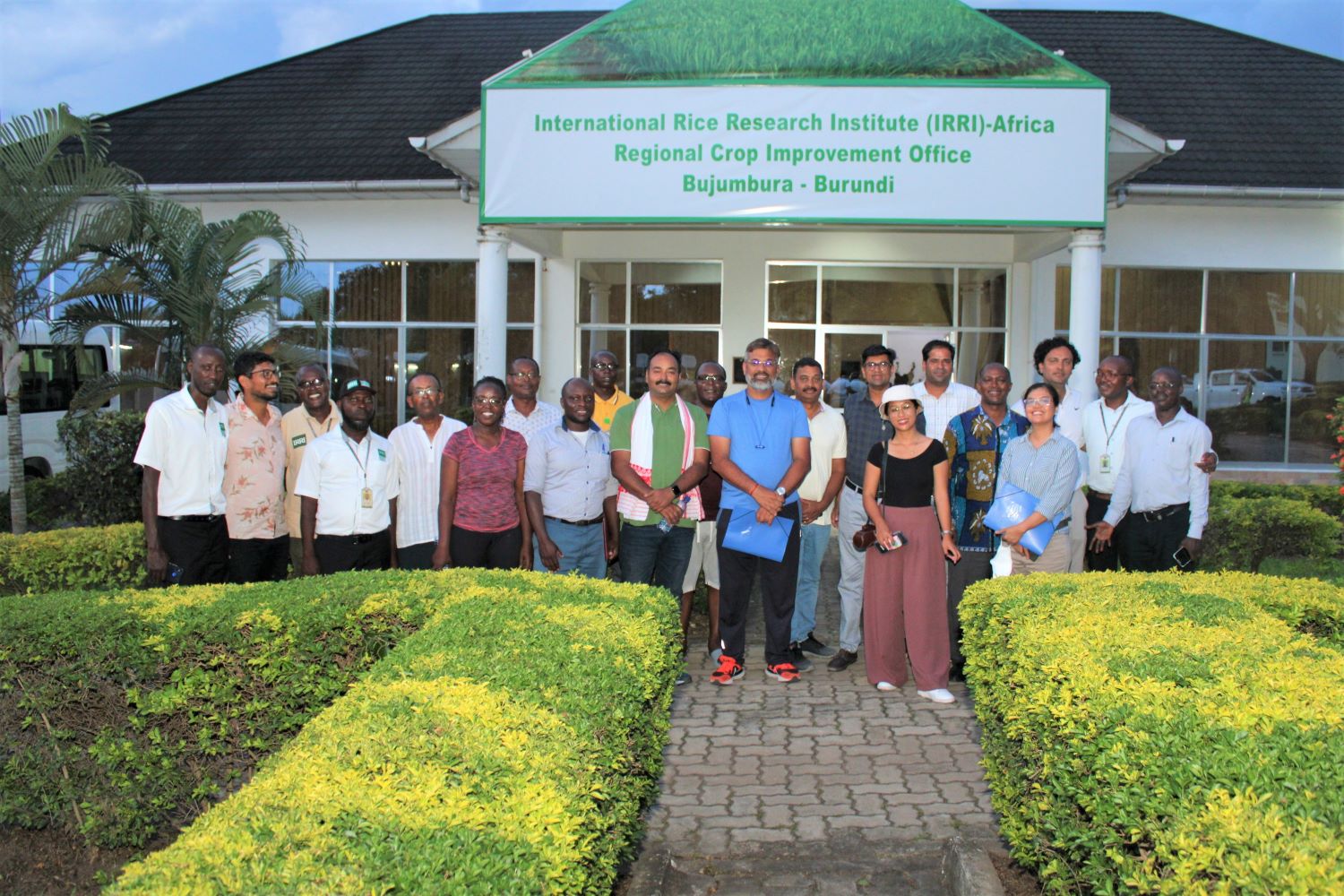In a bid to enhance agricultural innovation and exchange best practices, the International Rice Research Institute (IRRI) Rice Breeding Innovation (RBI) team completed their East and Southern Africa (ESA) Crop Tour. This year, the RBI teams, alongside AfricaRice breeders and NARES partners, focused their efforts on Tanzania and Burundi with the visit spanning from 8 to 17 May 2023.
This annual tour aims to oversee and appreciate the breeding, seed systems, and product management activities done by different National Agricultural Research and Extension Systems (NARES) and IRRI hubs across the region.
In Burundi, the IRRI-RBI team, AfricaRice breeders, and representatives from the Burundi Institute of Agricultural Sciences (ISABU) went on a comprehensive tour visiting the IRRI ESA Crop Improvement Hub, to explore greenhouses and laboratories, offering them valuable insights into the ongoing research efforts taking place at the hub.
In the Gihanga regional breeding hub field, the team explored the diverse breeding trials at different stages, including medium-maturity and early-maturity breeding pipelines. During the visit, the teams offered valuable recommendations for improvement, such as implementing roguing activity before harvesting to ensure good quality seeds and utilizing flooding before land preparation. The tour also shed light on the need to equip the rainout shelter facility for drought experiments with a soil tensiometer to effectively monitor groundwater levels.
The team also visited the Accelerated Innovation Delivery Initiative in the Great Lakes (AID-I GL) project demonstration plots, which showcase advanced rice production technologies. The teams were particularly keen to understand how these technologies were being adopted by farmers, especially the rice direct seeding method.
One of the highlights of the tour is the improved Komboka variety, which garnered appreciation from the experts, leading to the suggestion of sharing its seeds with IRRI in the Region and IRRI-HQ to promote its wider adoption.
Another tour stop in Burundi is the IRRI Akagoma Research Centre, which is focused on screening for cold and diseases such as rice blast, sheath rot, and rice yellow mottle virus. The observation of rice grain discoloration prompted the suggestion of applying fungicide during the booting stage to address the issue effectively.

Following the visit, the RBI team expressed admiration for the dedication and achievements of the IRRI-Burundi team and pledged continued support for IRRI ESA breeding hubs in their various activities.
This collaborative crop tour has proven to be an essential platform for fostering agricultural innovation, sharing knowledge, and strengthening partnerships in the East and Southern Africa region.

